- ALL SERVICES
- • Salesforce Consulting Services
- • Managed Services
- • Simplification of Interfaces
- • Data Migration and Processing
- • Architectural Solutions and Scoping
- • Code Review, QA and Support
- • Applications Development
- • Pre-sales and Solutions Consulting
- • Technical Audit and Support
- • Custom Applications Development
- • AI Apps
BLOG
What is SALESFORCE?
• Date: December 2020 •
Estimated reading time: 7 minutes
This question has a lot of answers, applicable to different audiences. And while Salesforce is a powerful corporation, a leader of Cloud computing automation, one of the best places to work and one of the greatest innovators, it's also a domain that attracts talents and provides a thankful ecosystem where every person can find the best individual path to grow skills and develop themselves as professionals.
But in this article we're going to focus on a different definition of Salesforce.
But in this article we're going to focus on a different definition of Salesforce.
What is Salesforce for a business?
The author of these lines is a business owner with almost 20 years of experience of management of retail, wholesale and production companies. And during my career, I was spending a lot of efforts on the automation of my companies.
Each business can be represented as a number of different functions - sets of actions, conducted by certain people or automated, but always dealing with some entities that are being managed or processed, to get some expected result. On the top level of abstraction it's probably a set of Sales, Marketing, Resource Management, People Management functions.

Each of these major united functions is decomposed to smaller ones, down below to the operational level of a particular employee. The way how these functions are organized, combined with the corporate culture, probably defines the organizational competitiveness and unique outlook.
I've seen interesting examples of companies who try to use separate specific IT systems to automate particular functions. One system - for CRM, another one - for project management, a third one - for inventory, a fourth - for accounting, etc. Such an approach creates a siloed conglomerate of systems with different interfaces, used by different departments, quite rarely connected altogether, without a single view of the customer, with lots of human mistakes happening while transferring information from one system to another.

An opposite approach would be to try to create an ultimate ideal all-in-one custom IT system that would be 100% tailored to the needs of a particular company, and will live and develop itself with the company growth. Such an approach is extremely risky, and causes the need to find solutions for such business tasks that have been successfully solved plenty of times - for instance, how to present a sales pipeline. Far from an ideal way, but some companies achieve considerable success on this path.
I was struggling with similar challenges, but when I got acquainted with Salesforce some time ago, I was surprised to see that it's a solution for both approaches. With Salesforce you can get a set of specialized tools for each of your business functions, but also you can tailor it 100% to the needs of your particular business, due to its scalability and flexibility.
Salesforce Architecture
Salesforce as a platform consists of three layers:
Layer one - a scalable database and the technical backend written on Java and working on the cloud premises of Salesforce itself and its partners. That's where all your data is actually located and separated, and the code is working. As a business stakeholder, you shouldn't worry about it, it's enough to remember that Salesforce takes care of the security of your data, all devops operations, and the hardware infrastructure. This thing is marvelously scaleable, and with just one license you have the full access to its advantages. You don't have to worry about upgrading servers anymore, and keep them in good condition.
Layer two - the logical backend layer of automation, where Salesforce developers can create executable code and build ANY automations you can think of. This is what differentiates Salesforce from smaller competitors. On the customer-facing side systems may look similar, and even the lists of features can be quite comparable. But the power, flexibility and scalability of Salesforce backend layer are unbeatable. For you as a business stakeholder that means that you'll never be limited by the system's capabilities in any ideas of your business growth. You can customize the system to any extent you can think of. And because Salesforce provides a huge number of out-of-the-box components, quite often this customization is done relatively quick and cheap.
Layer three - the customer-facing applications, the Clouds. Sales Cloud, Service Cloud, Marketing Cloud, Commerce Cloud, Community Cloud (now Experience Cloud), etc. These are out-of-the-box sets of automations for typical business processes and functions, more or less generic to be applicable in any industry, but because of that, requiring certain customization before use. Salesforce is constantly upgrading its portfolio of applications and introduces the new ones. Together with the powerful backend, this selection of Clouds creates such a unique ecosystem that allows a company to automate all its activities on Salesforce. Implement it step by step, block by block, never reaching a blocker and never facing a technical need to change the system to something else.

And you should remember of thousands of third party applications available on AppExchange.
So, to sum it up:
- Salesforce is a powerful platform that combines the secure technical backend taken care and operated by Salesforce with the customer-facing capabilities of unlimited customization using Salesforce Clouds, third party packages and your own applications
- Salesforce is big - you need to spend time to route your path and understand what configuration of Salesforce fits your needs in the best way. This time and efforts can be saved by using the services of a Salesforce Consulting Partner.

Proper implementation of Salesforce consists of several stages:
- Professional business analysis that's crucial to define the business goals, technical implementation details and the way the company (employees) will work with the new solution
- Technical implementation, that depends on the proficiency of the Salesforce developers and administrators, accurate and timely project management and attentive customer UAT
- User adoption that hugely depends on the involvement of the company's stakeholders in the business analysis stage, and the consistency of the change management in the organization.
Twistellar is one of the fastest-growing Salesforce consulting partners in the market. Combining deep business expertise with technical excellence we help companies all over the world to leverage Salesforce and achieve remarkable business results.
Our Best Articles and Salesforce Overviews
Feeling like teaming up with us at Twistellar? We are excited too! Whether you'd like to customize your org, built a bespoke application or integrate a third-party tool, Twistellar is ready to help you.

